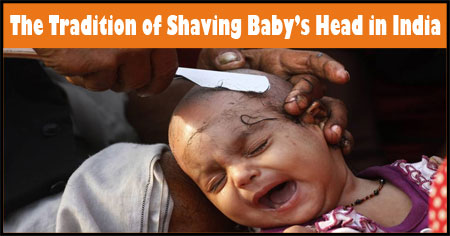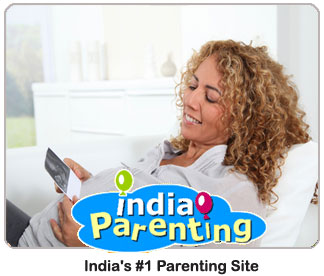Having vitamin supplements is essential for having a healthy pregnancy and a healthy baby. Read more about having vitamin supplements during pregnancy. In this articleAre Vitamin Supplements Necessary?Why Folic Acid is Essential?Are Vitamin Supplements Necessary? Yes, it is important to take vitamin supplements when you are pregnant. This is because all the nutrients required by your body and the growing baby may not be met from your diet alone. Irrespective of your consuming healthy, balanced diet it is recommended that you take vitamin supplements before and after you conceive. This will ensure that you get all the necessary nutrients required to conceive and have a safe and healthy pregnancy. There are certain categories of women who must take supplements recommended by their doctors without fail. These include women who are: Vegans or vegetarian. Have food intolerance like lactose-intolerance. Exposed to smoke or are addicted to certain drugs. Suffering from or have a past history of certain chronic diseases, blood disorders or have had a gastric bypass surgery. Pregnant with multiple babies like twins or triplets. Most doctors recommend that women take prenatal vitamins along with a certain amount of folic acid at least three months before trying to conceive. Research studies have indicated that taking folic acid supplements alone or in combination with vitamins is useful to prevent miscarriages, neural tube defects and even some forms of cancer in new born babies. Folic acid and iron are two most important prenatal vitamins which pregnant women must take since it is not possible to get enough of these nutrients from food alone. In addition, calcium, fatty acids and vitamin D are the other supplements which are very beneficial for pregnant women.Why Folic Acid is Essential? A type of Vitamin B, folic acid can significantly reduce a baby’s risk of suffering from neural tube defects such as spina bifida. It also plays an important role in reducing risk of defects like cleft lip, cleft palate, and heart defects. It is also useful to lower the risk preeclampsia. Medical research has indicated that our body is capable of absorbing the synthetic version of folic acid much better as compared to natural sources found in food. Therefore most doctors recommend that you take folic acid supplements both before and after getting pregnant. Iron -Expectant mothers need extra iron during pregnancy. Deficiency of iron can cause anemia which in turn enhances the risk of having a preterm delivery, infant mortality and low birth weight of your baby. Calcium - Calcium is essential to help a baby grow strong bones, teeth, healthy nerves and muscles. Essential Fatty Acids - Omega 3 fatty acids, DHA and EPA fall in this category of nutrient. These are essential for proper development of a babys brain, nerve, and eye tissue. Fish is a major source of DHA and EPA. However it is not advisable to consume fish high in mercury during pregnancy. It is best to consult your doctor about supplements and food sources of fatty acids before consuming it. Vitamin D - Vitamin D is a fat-soluble vitamin which is essential for building a growing babys bones and teeth. It also plays a vital role in maintaining levels of calcium and phosphorus in our body. Deficiency of this nutrient during pregnancy can put the baby at risk for rickets, delayed physical development and abnormal growth of bones. In pregnant woman deficiency of this vitamin increases the risk of pre-eclampsia. Pregnant women must never start taking medicines including nutritional supplements on their own. It must always be done only after consulting a doctor. Vitamin supplements cannot replace a healthy balanced diet. However supplements help in ensuring that the pregnant woman receives all the essential nutrients required by the body and the baby in the womb.
Having vitamin supplements is essential for having a healthy pregnancy and a healthy baby. Read more about having vitamin supplements during pregnancy. Are Vitamin Supplements Necessary?
Yes, it is important to take vitamin supplements when you are pregnant. This is because all the nutrients required by your body and the growing baby may not be met from your diet alone. Irrespective of your consuming healthy, balanced diet it is recommended that you take vitamin supplements before and after you conceive. This will ensure that you get all the necessary nutrients required to conceive and have a safe and healthy pregnancy.
There are certain categories of women who must take supplements recommended by their doctors without fail. These include women who are:
- Vegans or vegetarian.
- Have food intolerance like lactose-intolerance.
- Exposed to smoke or are addicted to certain drugs.
- Suffering from or have a past history of certain chronic diseases, blood disorders or have had a gastric bypass surgery.
- Pregnant with multiple babies like twins or triplets.
Most doctors recommend that women take prenatal vitamins along with a certain amount of folic acid at least three months before trying to conceive. Research studies have indicated that taking folic acid supplements alone or in combination with vitamins is useful to prevent miscarriages, neural tube defects and even some forms of cancer in new born babies.
Folic acid and iron are two most important prenatal vitamins which pregnant women must take since it is not possible to get enough of these nutrients from food alone. In addition, calcium, fatty acids and vitamin D are the other supplements which are very beneficial for pregnant women.
Why Folic Acid is Essential?
A type of Vitamin B, folic acid can significantly reduce a baby’s risk of suffering from neural tube defects such as spina bifida. It also plays an important role in reducing risk of defects like cleft lip, cleft palate, and heart defects. It is also useful to lower the risk preeclampsia.
Medical research has indicated that our body is capable of absorbing the synthetic version of folic acid much better as compared to natural sources found in food. Therefore most doctors recommend that you take folic acid supplements both before and after getting pregnant.
Iron -Expectant mothers need extra iron during pregnancy. Deficiency of iron can cause anemia which in turn enhances the risk of having a preterm delivery, infant mortality and low birth weight of your baby.
Calcium - Calcium is essential to help a baby grow strong bones, teeth, healthy nerves and muscles.
Essential Fatty Acids - Omega 3 fatty acids, DHA and EPA fall in this category of nutrient. These are essential for proper development of a baby's brain, nerve, and eye tissue. Fish is a major source of DHA and EPA. However it is not advisable to consume fish high in mercury during pregnancy. It is best to consult your doctor about supplements and food sources of fatty acids before consuming it.
Vitamin D - Vitamin D is a fat-soluble vitamin which is essential for building a growing baby's bones and teeth. It also plays a vital role in maintaining levels of calcium and phosphorus in our body. Deficiency of this nutrient during pregnancy can put the baby at risk for rickets, delayed physical development and abnormal growth of bones. In pregnant woman deficiency of this vitamin increases the risk of pre-eclampsia.
Pregnant women must never start taking medicines including nutritional supplements on their own. It must always be done only after consulting a doctor. Vitamin supplements cannot replace a healthy balanced diet. However supplements help in ensuring that the pregnant woman receives all the essential nutrients required by the body and the baby in the womb.






























